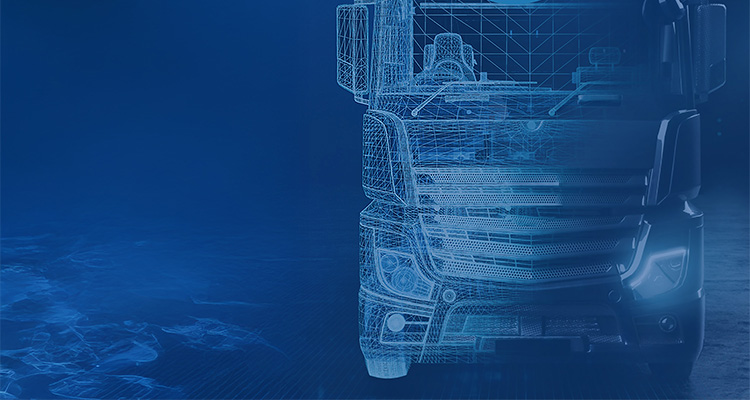Carl Hanson on rewriting the playbook for transport and supply chain management
In today’s high-stakes supply chain landscape, procurement can no longer afford to operate on autopilot. From political uncertainty to rising costs, evolving regulations and tougher sustainability rules, supply chain teams are rethinking how they buy, plan, and work together. The result? Procurement’s role is changing fast, no matter where in the world.
Too often, procurement is viewed as a transactional function, siloed from wider business strategy. In today’s competitive environment, that mindset is increasingly unfit for purpose. The truth is that procurement will be essential to achieving Net Zero. What’s needed now is a bold rethink that positions procurement not just as a tactical function, but as a strategic engine for resilience, innovation, and long-term value creation.
Transport and logistics is one key area where a new approach can deliver significant gains.
As logistics becomes more complex, procurement plays an increasingly crucial role in reducing transport emissions – a vital step in meeting net-zero commitments, while adding value to business. But with net-zero targets now only three vehicle procurement cycles away, action must be taken now.
An evolution is needed. The future of procurement must be leaner, greener, and smarter. The good news is that the appetite for transformation is clear, but so are the barriers.
Leaner: From rigid processes to agile partnerships
Procurement leaders are grappling with growing complexity. Think about legacy systems, fragmented processes, and rigid contract structures. These barriers don’t just slow things down, they stifle innovation and make it much harder to adapt quickly to emerging opportunities.
Indeed, our research shows that 63 percent of UK logistics and supply chain leaders believe current procurement processes are too rigid to allow for true innovation. Why? Because organizations often set these processes in stone long before defining what needs to be procured.

In a world where technology, customer expectations, and sustainability targets are evolving fast, this rigidity can be a serious liability, preventing more ambitious solutions from being considered, let alone implemented. This can result in unnecessarily high spending.
One example of what is needed in transport procurement is moving away from fixed closed-book contracts, as these can be inflexible and limit the adaptability of supply chain dynamics. To stay competitive, organizations must evolve their procurement strategies to embrace digital tools and foster agility. That means building flexibility from the outset.
Greener: Aligning procurement with sustainability goals
The journey to Net Zero starts with procurement, but as Wincanton’s research reveals, there’s a critical disconnect between ambition and action.
Encouragingly, 83 percent of UK supply chain, transport, and logistics decision makers recognize that logistics is key to achieving their net-zero goals and lowering emissions. However, 79 percent say that logistics decisions are still primarily cost-led, and 66 percent say that cost pressures are actively sidelining their net-zero commitments. As a result, 54 percent of businesses say they will struggle to hit their net-zero targets.
While fleet decarbonization is one of the most tangible routes to lowering transport emissions, only 25 percent believe alternative fuel vehicles will be affordable within the next four-to-six years. This is a stark reminder of the scale of the challenge, but the financial and infrastructure hurdles are real, and they highlight the need for smarter, more strategic procurement.
All these figures are a wake-up call. The race to decarbonize is accelerating, and procurement has a pivotal role to play in helping organizations get ahead.
The key lies in closely aligning procurement strategies and wider business objectives before supplier and market engagement. This is a critical success factor in delivering transformational cost and sustainability outcomes.
Smarter: Breaking down silos to drive strategic impact
For procurement to deliver meaningful impact, it urgently needs to be more adaptable and aligned with wider strategic business goals.
Yet 58 percent of the supply chain professionals say transport and logistics are still misunderstood by other parts of the business, evidence of persistent silos that hinder progress.
Smarter procurement requires strategic integration. It needs to be embedded into finance, sustainability, operations, and digital transformation plans from the start, not treated as an afterthought. This joined-up thinking enables faster, better-informed decisions that align commercial performance with ESG goals.
It also calls for strong collaboration with trusted partners that understand both the strategic and operational dimensions of supply chain transformation. Procurement should be seen as a platform for innovation, not just a process.
Thankfully, digital transport solutions like Wincanton’s EyeQ platform are already helping procurement leaders unlock greater value by fostering collaboration whilst enabling real-time visibility, continuous optimization, and smarter data-driven decision-making. Digital transformation doesn’t just streamline operations; it opens the door to long-term efficiency gains across the entire transport network.
Procurement’s pivotal moment is now
Procurement leaders are facing a critical choice – stay the course with legacy models that prioritize short-term cost savings or reimagine procurement as a strategic engine for long-term value, sustainability, and agility.
This is especially pertinent in the acquisition of transport and logistics services, where a leaner, greener, smarter approach can be a gamechanger, eliminating silos, reducing transport inefficiencies, and lowering emissions and costs.
By evolving beyond its traditional boundaries, procurement can become a catalyst for positive change, driving efficiencies, unlocking insight, and helping businesses adapt with confidence to the challenges ahead.
This is not without its challenges, but the risks of inaction are far greater. With net-zero targets fast approaching, public and investor scrutiny intensifying, and technology transforming what’s possible, the time to act is now.
Carl Hanson
Carl Hanson is the Group Transport Managing Director at Wincanton and has been with the company for eight years. During his tenure, he has managed various Group functions including fleet, property, and procurement. Under his leadership, Wincanton has experienced business growth, substantial savings, and operational improvements. His career spans the construction and rail sectors, with previous commercial and business roles at Balfour Beatty and Jarvis Rail.
